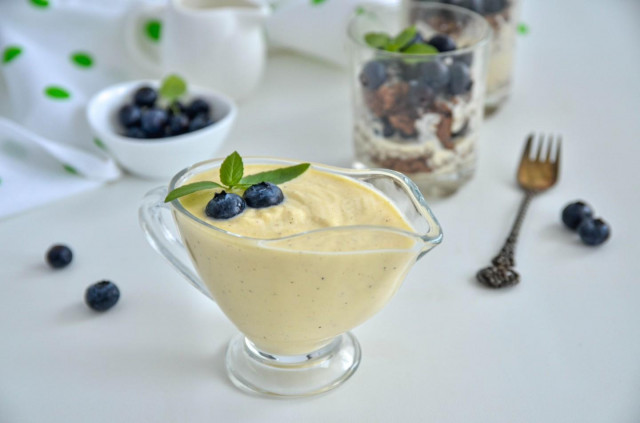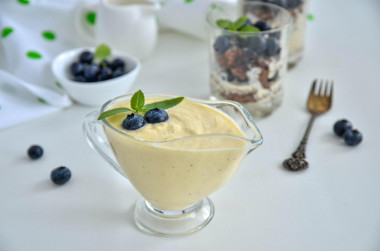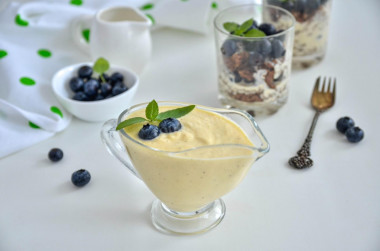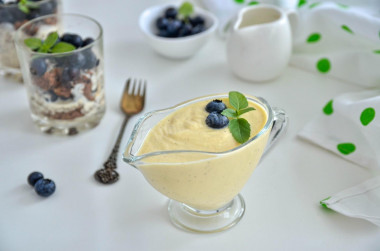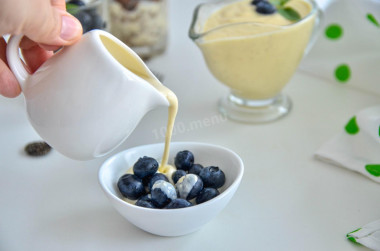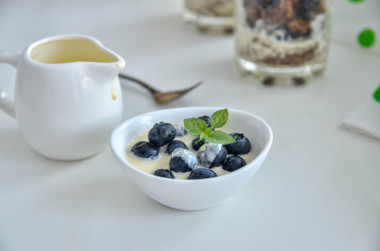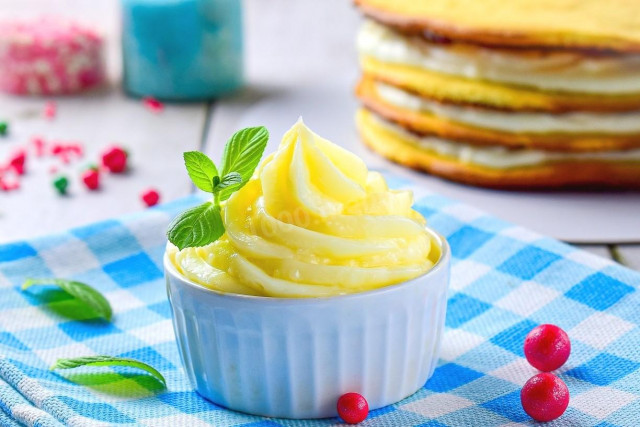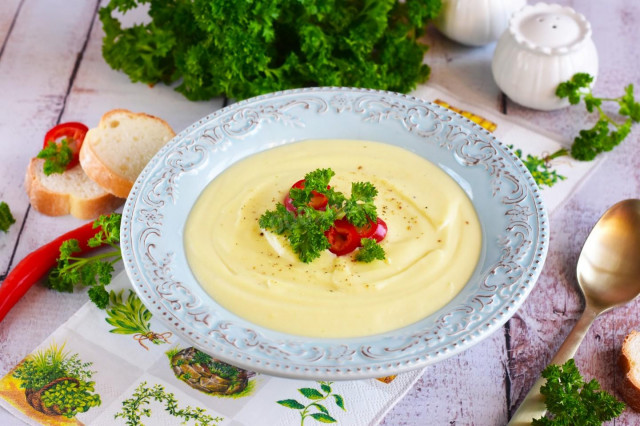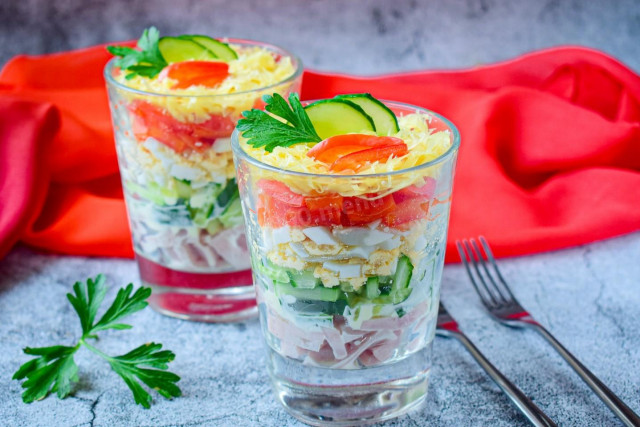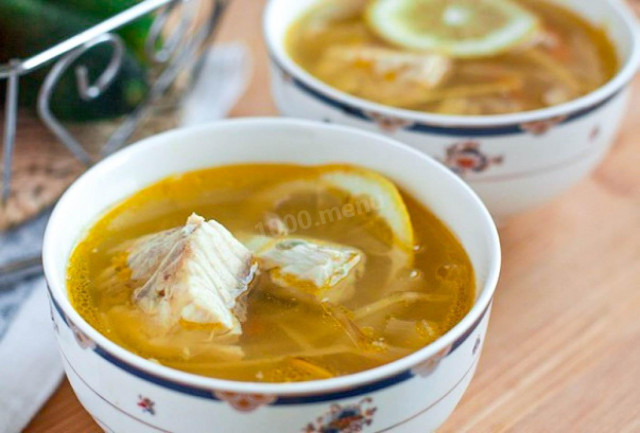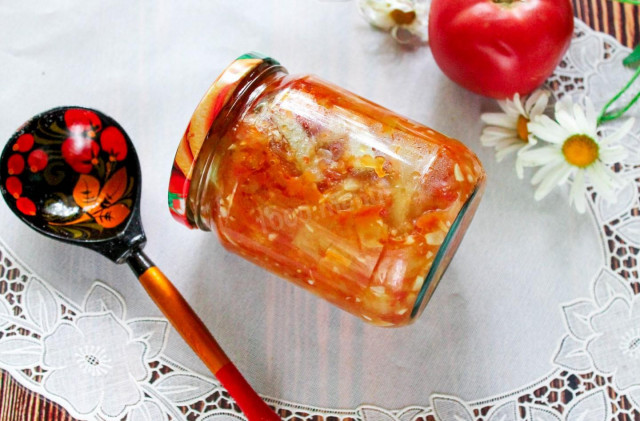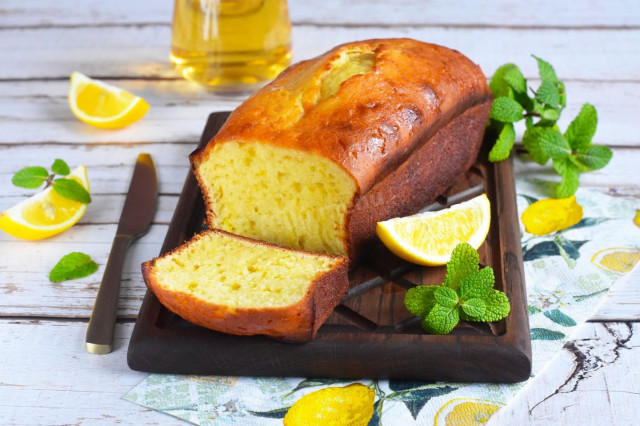Composition / ingredients
Step-by-step cooking
Step 1:
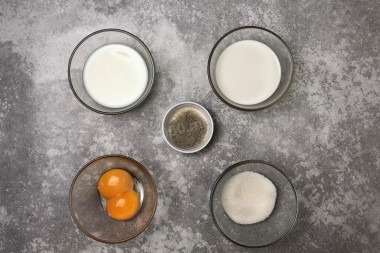
Prepare the products for making the cream. It is better to weigh all the products on the scales, especially the yolks. 45 grams are the yolks of two large eggs. If you get more weight than in the recipe, then mix the yolks and then measure the right amount. It will be much more convenient this way. Or increase the amount of other products in proportion to the weight of the yolks. Vanilla is most often used as a flavoring agent, I have vanilla sugar with natural vanilla.
Step 2:
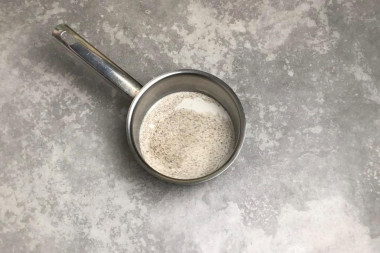
Take a saucepan with a thick bottom. Pour milk and cream into it. Add half the norm of sugar and flavor. I have vanilla sugar. You can take natural vanilla and scrape out the pulp with seeds from it. You can take vanilla extract. Aromatic herbs, cinnamon, coffee, tea are also well suited as a flavoring. It is better to choose natural, not chemical flavors.
Step 3:
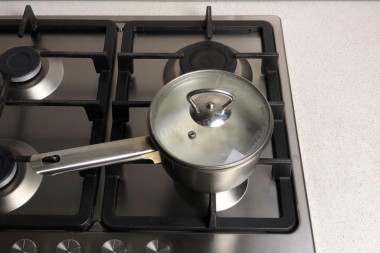
Bring the mixture to a boil, but do not boil. As soon as the first bubbles appear, turn off the heating immediately. Cover the saucepan with a lid and let it brew for 15-20 minutes. This is necessary in order to infuse the flavor. You can not do this if you are limited in time, but it will be much tastier this way. Some recipes suggest leaving the mixture overnight.
Step 4:
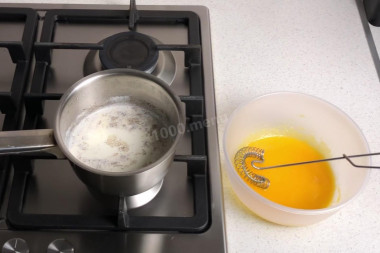
After the prescribed time, put the mixture back on the fire to warm it up well again. At the same time, stir the yolks with the remaining sugar. No need to beat them - just mix until smooth.
Step 5:
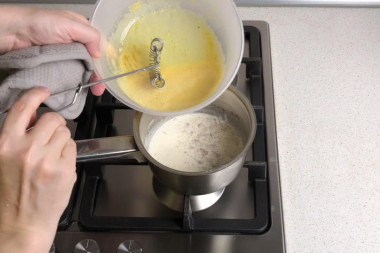
Pour a small amount of hot milk mixture into the yolks. At the same time, be sure to constantly stir the yolks so that they do not curdle from the heat. Then pour the mass with the yolks back into the saucepan.
Step 6:
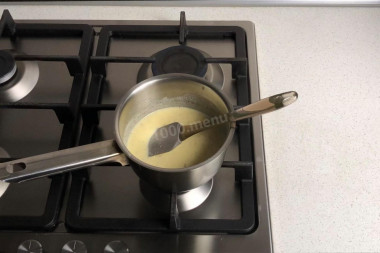
Put the saucepan on the smallest fire and, with constant stirring, bring to a thickening. It is most convenient to stir with a silicone spatula - it perfectly collects the product from the walls and bottom. And this is important, because the yolks can stick there from heating and turn into an omelet.
Step 7:
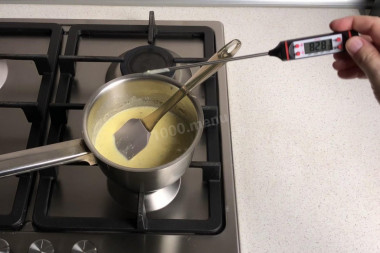
Cook the cream to a temperature of 82 °C. At a higher temperature, the yolks will cook and the cream will be spoiled.
Step 8:
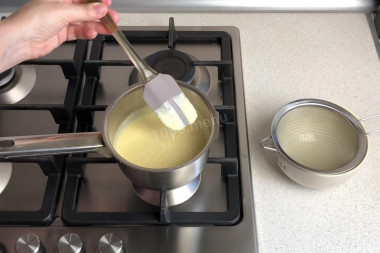
If you don't have a thermometer, then check the readiness for a finger mark on the shoulder blade - it should remain clear. It is better not to cook the cream than to digest it.
Step 9:
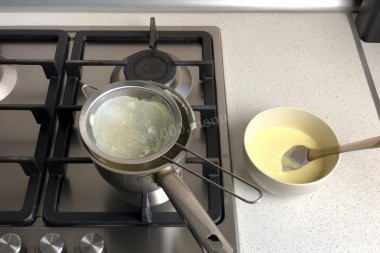
As soon as the cream reaches the desired temperature, immediately turn off the fire. Strain it through a sieve into another bowl - this will stop the heating and remove the particles of the curdled protein, if it remained during the separation of eggs. Also, this way you will remove the flavor if you used something large.
The finished cream can be consumed immediately in this form. It is perfect for watering pastries, berries, desserts. The cooled cream can be used to make other types of creams, ice cream and cakes.
Be sure to wash the eggs before use, as even the seemingly clean shell may contain harmful bacteria. It is best to use food detergents and a brush.
Caloric content of the products possible in the composition of the dish
- Whole cow's milk - 68 kcal/100g
- Milk 3.5% fat content - 64 kcal/100g
- Milk 3.2% fat content - 60 kcal/100g
- Milk 1.5% fat content - 47 kcal/100g
- Concentrated milk 7.5% fat content - 140 kcal/100g
- Milk 2.5% fat content - 54 kcal/100g
- Granulated sugar - 398 kcal/100g
- Sugar - 398 kcal/100g
- Cream 35% - 337 kcal/100g
- Cream 40% - 362 kcal/100g
- Egg yolks - 352 kcal/100g
- Vanilla sugar - 379 kcal/100g

